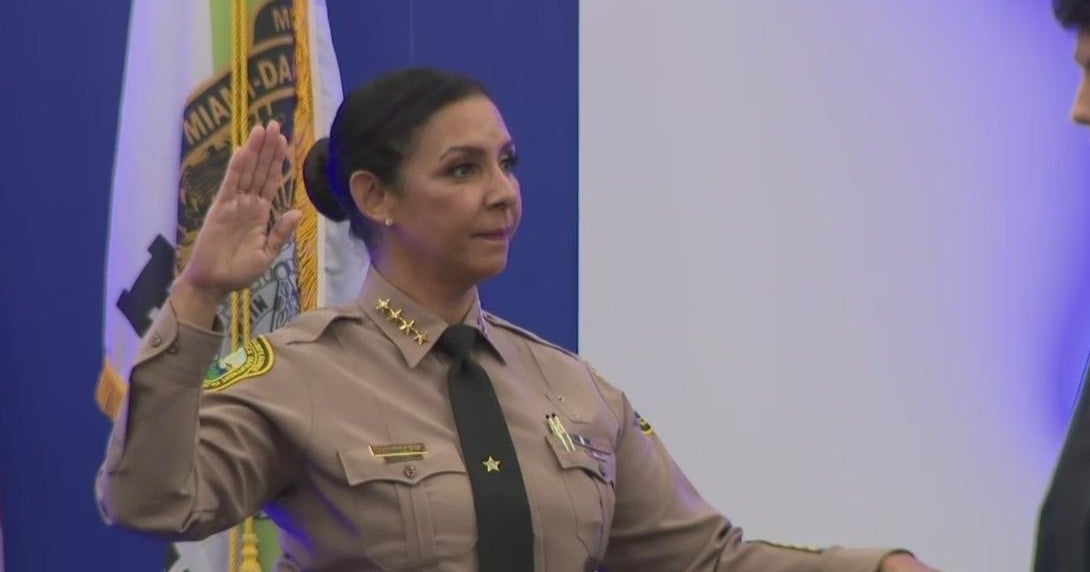CBS4 Investigates: The Woman Who Speaks To The Dead
MIAMI (CBSMiami) - While most of us are asleep, night after night she is called to the streets, to unravel the crimes that make nightmares.
"Is it a shooting? Is it a stabbing? " Dr. Emma Lew, the Deputy Medical Examiner in Miami-Dade County tells CBS4's Chief Investigative Reporter Michele Gillen, that this is one of the first questions she asks when she gets called to a crime scene.
A policeman's flashlight and a shower of moonlight illuminate clues as to how the man at her feet was murdered.
Gillen asked Dr. Lew, "Do you think you're fascinated by death?"
"I believe I am," Lew responded.
Few will recognize Dr. Lew's face, and that's no accident.
"I try to stay incognito or as unobtrusive as I can. I prefer that people don't know who I am. I don't think I look like a typical medical examiner and that's just fine with me."
For the past two decades, Dr. Lew's dissected the horror of crime scenes in our streets that ultimately lead to her office... the morgue.
"What we are after, is the truth behind the death," explained Dr. Lew.
She painstakingly has performed autopsies on 1,000's of strangers who mysteriously lost their life.
Forever present is the notion that the victim is someone's loved one and the truth of how they died, can't be buried with them.
"Why do you care so much about the dead?" asked Gillen.
"Because we have to do it for the living. It's important to the wife, the husband, to the son, to the mother. It's important to the family. It's important to the police, cause if there has been a criminal act that has been carried out, they need to find the person responsible," Dr. Lew explained.
She lives on call, she told Gillen, who asked about the process. "You arrive at the scene. It could be any hour of the day..."
"Or night," Lew added.
Then the Medical Examiner sets out to pierce the mask of the obvious.
"I am somewhat obsessive compulsive about taking photographs and taking notes at the scene. Not all Medical Examiners take notes," she explained.
Dr. Lew mines for the truth by taking those notes and her own photos. A rarity -- in most communities ---the medical examiner relies on photos taken by an investigator. Not in Miami-Dade.
"So you are really an exception?" asked Gillen.
"Our jurisdiction perhaps has our doctors responding to scenes of death more frequently than any... most other jurisdictions in the country," Lew told Gillen.
"Are you grateful for that?" Gillen wondered.
"Yes. We are spoiled by that. We get to see with our own eyes, the body in the body, in the context of it's surroundings," said Lew.
After everything at the scene is documented, the body, back at the morgue, is then studied.
Dr. Lew explained the process. "First of all we work from the outside in. We look at the outside of the body front and back. We look at the hands and arms very carefully."
For devastated loved ones, she is the last to to see and to touch the victim. Family members are no longer allowed to identify the victim in person at the morgue. They are show a photograph instead.
"Is it particularly tough when the family needs to come here and identify their family?" asked Gillen.
"We use photographs so that can be a very emotional time for the families. And once in awhile, it can be very emotional for the Medical Examiner too, because they could be sitting in my office crying. Once in awhile, they want to give me a hug because I'm the last person to see their loved one or to take care of their loved one."
"And when they hug you, what do you feel?" asked Gillen
"I feel that I'm glad I spent the time to document the things that I did. I want them to feel the closure they so much need," Lew said.
Raised in Canada, as a young girl Dr. Lew dreamed of becoming a fashion illustrator.
At first, her grown up dream of becoming a medical examiner was shot down because she was a woman.
"When I started out there were actually professors and people I respected who tried to talk me out of going into Forensic Pathology, suggesting that there are other specialties in Patholody that might be better suited for a female," Lew explained.
In fact, females now dominate crime labs around the country.
"The females that we have seen are very, very attentive to detail and sometimes that's really what is needed to get that little finding to document something in a certain way," said Lew.
While her office is one -- no one wants to visit-- you can count on this doctor to be sorting out secrets..with the hope that truth takes on ..a life of its own.



